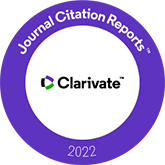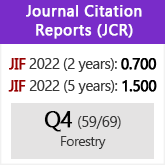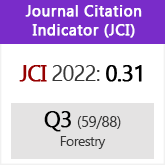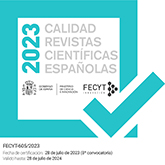Cognitive social capital and local forest governance: community ethnomycology grounding a mushroom picking permit design
Abstract
Aim of study: The local ecological knowledge shared in rural communities shapes their norms for using their nearby open-access natural resources. We suggest a method to analyse this form of cognitive social capital with an application to a mushroom picking permit.
Area of study: Poblet forest in Catalonia (NE Spain).
Material and methods: We applied semi-structured questionnaires to pickers in four municipalities and to the governing body of the protected area. Our methodology assesses cognitive social capital combining three instruments: (i) inter-quartile ratio indexes for community cohesion, (ii) pair-wise comparisons across social groups: pickers and decision-makers (DM), and (iii) correlations for mental models linking perceived ecological, social and economic challenges with foreseen solutions.
Main results: Analogous perceptions between DM and local pickers were found in most mushroom-related problems, which align with most picking permit design features. The perceived dissimilar behaviour between local and foreign pickers, the need for forest tending –addressing the wildfire risk–, and trash left in the forest are shared among pickers and DM. Moreover, some mental models of the DM showed statistically consistence. At the individual picker level, mushroom eco-literacy relates to family learning and proximity to DM, while links between pickers and DM correlate with increased forest profitability expectations.
Research highlights: Strong convergence in cognitive indicators aggregated at the town level indicate a single hermeneutic community among local pickers, which seems to underlie the large permit acceptance but did not explain the differential permit uptake –thus, structural social capital emerges as complementary predictor.
Downloads
References
Andriani L, Christoforou A, 2016. Social capital: A roadmap of theoretical and empirical contributions and limitations. J Econ Issues 50: 4-22. https://doi.org/10.1080/00213624.2016.1147296
Barbeta A, Mejía-Chang M, Ogaya R, Voltas J, Dawson TE, Peñuelas J, 2015. The combined effects of a long-term experimental drought and an extreme drought on the use of plant-water sources in a Mediterranean forest. Glob Chang Biol 21: 1213-1225. https://doi.org/10.1111/gcb.12785
Berkes F, 2000. Rediscovery of traditional ecological knowledge as adaptive management. Ecol Appl 10: 1251-1262. https://doi.org/10.1890/1051-0761(2000)010[1251:ROTEKA]2.0.CO;2
BOE, 2003. Law 43/2003, of 21 November, of Forests. Boletín Oficial del Estado (Spain) 280, 22/11/2003.
BOE, 2009. Royal Decree 30/2009, of 16 January, that establishes the sanitary conditions to commercialize mushrooms for food use. Boletín Oficial del Estado (Spain) 20, 23/01/2009.
Bonet JA, De-Miguel S, Martínez de Aragón J, Pukkala T, Palahí M, 2012. Immediate effect of thinning on the yield of Lactarius group deliciosus in Pinus pinaster forests in Northeastern Spain. For Ecol Manage 265: 211-217. https://doi.org/10.1016/j.foreco.2011.10.039
Bourdieu P, 1986. Forms of capital. In: Handbook of theory and research for the sociology of education; Richardson JG (Ed). Greenwood Press, NY, pp. 231-258.
Brooks JS, 2010. The Buddha mushroom: Conservation behavior and the development of institutions in Bhutan. Ecol Econ 69: 779-795. https://doi.org/10.1016/j.ecolecon.2008.01.022
Cahill S, Llimona F, Cabañeros L, Calomardo F, 2012. Characteristics of wild boar (Sus scrofa) habituation to urban areas in the Collserola Natural Park (Barcelona) and comparison with other locations. Anim Biodivers Conserv 35(2): 221-233. https://doi.org/10.32800/abc.2012.35.0221
CEO, 2014. Òmnibus de la Generalitat de Catalunya 2014-1. Centre d’Estudis d’Opinió.
Coleman JS, 1988. Social capital in the creation of human capital. Am J Sociol 94: 95-120. https://doi.org/10.1086/228943
de Román M, Boa E, 2004. Collection, marketing and cultivation of edible funghi in Spain. Micol Apl Int 16: 25-33.
Denzau AT, North DC, 1994. Shared mental models: Ideologies and institutions. Kyklos 47: 3-31 https://doi.org/10.1111/j.1467-6435.1994.tb02246.x
DOGC, 1988. Law 6/1988, of 30 March, of Forests of Catalonia. Diari Oficial de la Generalitat de Catalunya No. 978, 15/4/1988.
Egli S, Peter M, Buser C, Stahel W, Ayer F, 2006. Mushroom picking does not impair future harvests - Results of a long-term study in Switzerland. Biol Conserv 129: 271-276. https://doi.org/10.1016/j.biocon.2005.10.042
Ellickson RC, 2001. The market for social norms. Am Law Econ Rev 3: 1-49. https://doi.org/10.1093/aler/3.1.1
Garibay-Orijel R, Caballero J, Estrada-Torres A, Cifuentes J, 2007. Understanding cultural significance, the edible mushrooms case. J Ethnobiol Ethnomed 3: 4. https://doi.org/10.1186/1746-4269-3-4
Giessen L, Buttoud G, 2014. Defining and assessing forest governance. For Pol Econ 49: 1-3. https://doi.org/10.1016/j.forpol.2014.11.009
Górriz-Mifsud E, Domínguez-Torres G, Prokofieva I, 2015. Understanding forest owners' preferences for policy interventions addressing mushroom picking in Catalonia (north-east Spain). Eur J For Res 134: 585-598. https://doi.org/10.1007/s10342-015-0874-2
Górriz-Mifsud E, Secco L, Pisani E, 2016. Exploring the interlinkages between governance and social capital: A dynamic model for forestry. For Pol Econ 65: 25-36. https://doi.org/10.1016/j.forpol.2016.01.006
Górriz-Mifsud E, Secco L, Da Re R, Pisani E, Bonet JA, 2017. Structural social capital and local-level forest governance: do they inter-relate? A mushroom permit case in Catalonia. J Environ Manage 188: 364-378. https://doi.org/10.1016/j.jenvman.2016.11.072
Hahn T, Olsson P, Folke C, Johansson K, 2006. Trust-building, knowledge generation and organizational innovations: The role of a bridging organization for adaptive comanagement of a wetland landscape around Kristianstad, Sweden. Hum Ecol 34: 573-592. https://doi.org/10.1007/s10745-006-9035-z
Hussain S, Sher H, 2023. Indigenous ecological knowledge and wild harvesting of morel mushrooms: the resource productivity and marketing in Swat, Pakistan. Environ Dev Sustain 25: 1773-1791. https://doi.org/10.1007/s10668-022-02121-z
Isaac ME, Dawoe E, Sieciechowicz K, 2009. Assessing local knowledge use in agroforestry management with cognitive maps. Environ Manag 43: 1321-1329. https://doi.org/10.1007/s00267-008-9201-8
Jones ET, Lynch KA, 2002. The relevance of sociocultural variables to nontimber forest product research, policy and management. In: Nontimber forest products in the United States; Jones ET et al. (Eds.) Univ. Press of Kansas, Lawrence, pp: 26-51
Kinzig AP, Ehrlich PR, Alston LJ, Arrow K, Barrett S, Buchman TG, et al., 2013. Social norms and global environmental challenges: The complex interaction of behaviors, values, and policy. Bioscience 63: 164-175. https://doi.org/10.1525/bio.2013.63.3.5
Kulnieks A, Longboat DR, 2013. Eco-literacy development through a framework for indigenous and environmental educational leadership. Can J Environ Educ 18: 111-125.
Lovrić M, Da Re R, Vidale E, Prokofieva I, Wong J, Pettenella D, et al., 2021. Collection and consumption of non-wood forest products in Europe. Forestry 2021: 1-14. https://doi.org/10.1093/forestry/cpab018
Nahapiet J, Ghoshal S, 1998. Social capital, intellectual capital and the organizational advantage. Acad Manag Rev 23: 242-266. https://doi.org/10.5465/amr.1998.533225
Ostrom E, 2011. Background on the institutional analysis and development framework. Policy Stud J 39: 7-27. https://doi.org/10.1111/j.1541-0072.2010.00394.x
Pacheco-Cobos L, Rosetti MF, Montoya Esquivel A, Hudson R, 2015. Towards a traditional ecological knowledge-based monitoring scheme: a proposal for the case of edible mushrooms. Biodivers Conserv 24: 1253-1269. https://doi.org/10.1007/s10531-014-0856-6
Pandit BH, Thapa GB, 2003. A tragedy of non-timber forest resources in the mountain commons of Nepal. Environ Conserv 30: 283-292. https://doi.org/10.1017/S0376892903000286
Pieroni A, 2016. The changing ethnoecological cobweb of white truffle (Tuber magnatum Pico) gatherers in South Piedmont, NW Italy. J Ethnobiol Ethnomed 12: 11. https://doi.org/10.1186/s13002-016-0088-9
Pilgrim S, Smith D, Pretty J, 2007. A cross-regional assessment of the factors affecting ecoliteracy: Implications for policy and practice. Ecol Appl 17: 1742-1751. https://doi.org/10.1890/06-1358.1
Poe MR, McLain RJ, Emery M, Hurley PT, Urban K, 2013. Urban forest justice and the rights to wild foods, medicines, and materials in the city. Hum Ecol 41: 409-422. https://doi.org/10.1007/s10745-013-9572-1
Polanyi M, 1958. Personal knowledge. Towards a post-critical philosophy. Univ. of Chicago Press. 428 pp.
Putnam RD, 1993. Making democracy work. Civic traditions in modern Italy. Princeton Univ. Press, Princeton. https://doi.org/10.1515/9781400820740
Regos A, Aquilué N, López I, Codina M, Retana J, Brotons L, 2016. Synergies between forest biomass extraction for bioenergy and fire suppression in Mediterranean ecosystems: Insights from a storyline-and-simulation approach. Ecosystems 19: 786-802. https://doi.org/10.1007/s10021-016-9968-z
Ruppert-Winkel C, Winkel G, 2011. Hidden in the woods? Meaning, determining, and practicing of "common welfare" in the case of the German public forests. Eur J For Res 130: 421-434. https://doi.org/10.1007/s10342-009-0335-x
Schlüter A, Koch M, 2009. Institutional change in the forest sector: trust and mental models. Eur J For Res 130: 383-393. https://doi.org/10.1007/s10342-009-0333-z
Serra R, Rodrigues E, García-Barrios R, 2017. Mushrooming communities: A field guide to mycology in the community forests of Portugal. Sustainability 9: 17. https://doi.org/10.20944/preprints201704.0140.v2
Woolcock M, 2001. The place of social capital in understanding social and economic outcomes. Can J Policy Res 2: 11e17.
Wunder S, 2005. Payments for environmental services: some nuts and bolts. CIFOR Occas Pap 42.
Yamin-Pasternak S, 2011. Ethnomycology: Fungi and mushrooms in cultural entanglements. In: Ethnobiology; Anderson E, et al. (Eds.), Wiley Blackwell, NJ, USA, pp: 213-230. https://doi.org/10.1002/9781118015872.ch13
Copyright (c) 2023 CSIC_INIA

This work is licensed under a Creative Commons Attribution 4.0 International License.
© CSIC. Manuscripts published in both the printed and online versions of this Journal are the property of Consejo Superior de Investigaciones Científicas, and quoting this source is a requirement for any partial or full reproduction.
All contents of this electronic edition, except where otherwise noted, are distributed under a “Creative Commons Attribution 4.0 International” (CC BY 4.0) License. You may read here the basic information and the legal text of the license. The indication of the CC BY 4.0 License must be expressly stated in this way when necessary.
Self-archiving in repositories, personal webpages or similar, of any version other than the published by the Editor, is not allowed.















